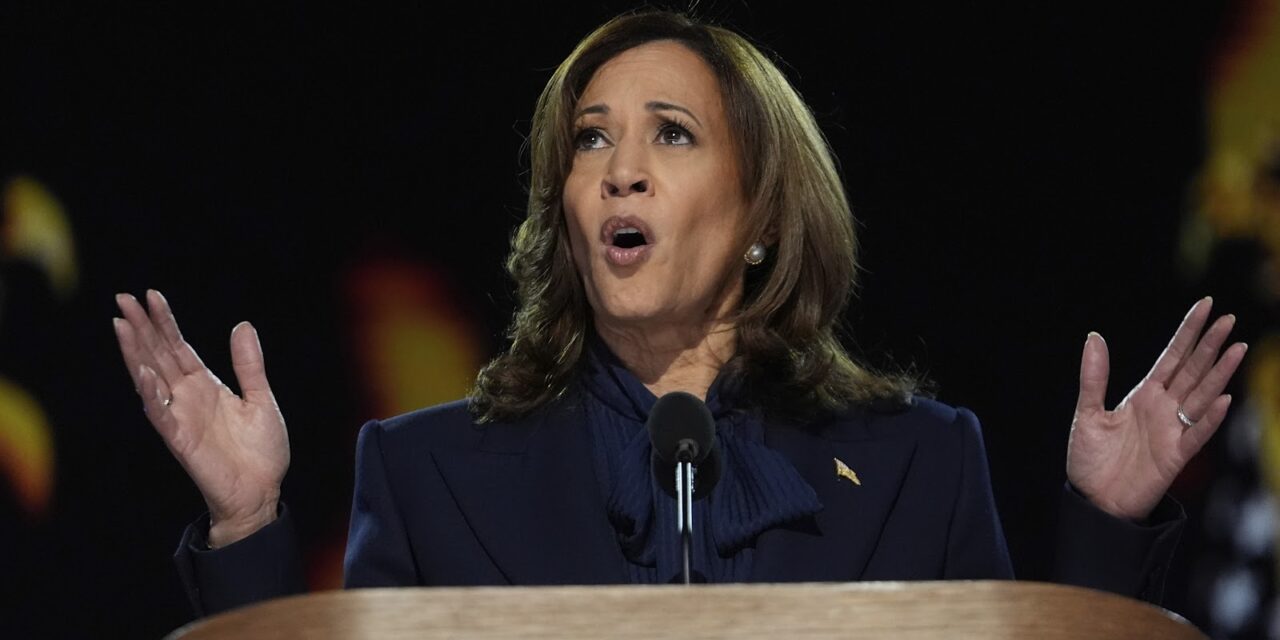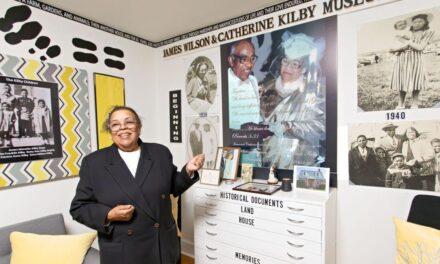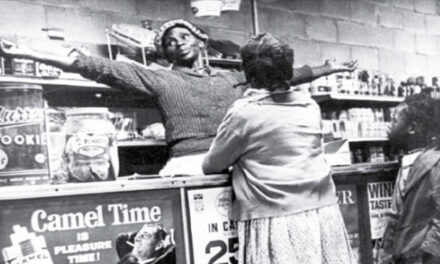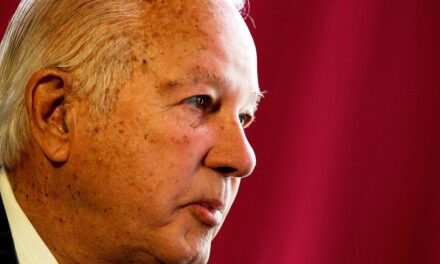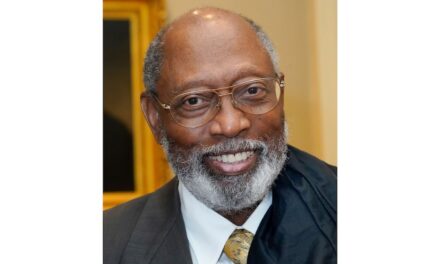
By Robert Hansen and Sterling Davies, OBSERVER Staff Writers
Black voters are concerned with the economy, gun violence, healthcare, and police reform – all things that they want to see Vice President Kamala Harris take on if elected President.
The state of the nation’s economy and cost of living are key issues for many, with inflation increasing by roughly 20% between 2020 and 2024.
“If people are not making enough money to take care of themselves they can’t take care of a family,” said Faye Wilson Kennedy, lead organizer for Sacramento Poor People’s Campaign.
She was among several well-known Black Sacramentans who spoke to The OBSERVER about Harris, the former California state attorney general, and U.S. Senator, and what she needs to do to energize one of the country’s most reliable voting blocs.
In California, Black and Latino families make up more than half of families at or below the lowest income level while comprising 44 percent of all families, according to Public Policy Institute of California. The opposite is true at higher levels: Black and Latino families make up 11 percent of those with incomes above the highest income level.
For every $1 that white families earn, Black families earn $0.58, and Latino families earn $0.52.
Harris has expressed her determination to alleviate the rise in inflation. “We believe in a future where we lower the cost of living for America’s families so that they have a chance not just to get by but to get ahead,” she said at a rally in Eau Claire, Wisconsin.
Harris has proposed one solution for inflation – a first-ever federal ban on price gouging from large companies. “My plan will include new penalties for opportunistic companies that exploit crises and break the rules,” Harris explained, “and we will support smaller food businesses that are trying to play by the rules and get ahead.”
While the Harris-Walz campaign has yet to release a detailed proposal for this strategy, she has declared the first 100 days of her administration will work to bring down the cost of groceries. “It will be a day one priority to fight to bring down prices.”
Harris is also planning to expand the Child Tax Credit, which would provide a $3,600 tax cut for families with children under 17, an increase from the current $2,000 a year. She also wants to give a $6,000 tax cut for families with newborns. “Building up the middle class will be a defining goal of my presidency,” Harris said during a campaign stop in Raleigh, N.C. “When the middle class is strong America is strong.”
Wilson Kennedy said extending or expanding the child tax credit has brought many children out of poverty. “To continue that just makes sense.” She said a “common sense” way to help the working class is Harris’s call to raise the minimum wage.
Jay King, president of the California Black Chamber of Commerce, has reservations about voting for Harris but given the choice between her and Donald Trump, he chooses Harris.
“Of the two, the best bet to preserve our Democracy to give us some semblance of normalcy is Kamala Harris,” King told The OBSERVER.
King said the wealth of Black communities being “stolen” by the American government has never been addressed by a president but if Harris were to do it, she can become historic.
If America looks at the history of Black business in earnest, including events such Tulsa’s 1921 Black Wall Street massacre that destroyed more than 35 square blocks and killed 300 Black citizens, “We must acknowledge they were burned down by the government and our leaders were killed,” King said. “We’re not to blame for a lot of the things that have happened to our businesses.”
King would like to see not just grants but low-interest business loans offered to Black entrepreneurs and Black chambers of commerce across the country who specialize in uplifting Black communities.
“A lot of us know how to do the work but learning how to scale a business is what we (Black communities) need help with” King said. “I was here before America. I’m sugar, I’m tobacco, I’m cotton, I’m the slave trade. I’m the four pillars that propelled America into the economic super power that it is.”
Criminal Justice
Another large concern on the minds of Black voters is how Kamala Harris will address police brutality and criminal justice, said Christopher Towler, Sacramento State political science professor.
Harris faces many Black voters who are skeptical about her past as a criminal prosecutor. “There are still a lot of Black voters who remember her campaign in 2019,” Towler explained. “A lot of the talk about her was that she was a cop, and this stuck with a lot of people … It’s going to be really important for Harris to counteract a lot of the past rhetoric about her position as a DA and her law enforcement background.”
King echoed those concerns highlighting that when Sacramento police shot and killed Joseph Mann, a 51-year-old mentally ill and homeless Black man armed with a knife, Harris, who was the California Attorney General at the time, declined to prosecute the officers.
“As a Black man, I don’t think she was a friend of mine,” King said.
Attorney Rick Owen, President of Sacramento’s Wiley Manuel Bar Association, agrees that the income inequality and home ownership for Black communities are a top priority for Harris. He is hopeful that criminal justice and police reform are too.
Owen is also senior staff counsel for the California Committee on Revision of the Penal Code, a state entity that studies and makes recommendations to the governor and legislature for improvements to California’s criminal legal system.
Criminal justice reform is a nuanced issue, Owen explained. Black communities want to see violent criminals held accountable, but do not support policies that lead to mass incarceration and a disproportionate number of Black men in prison.
“We need to find ways to hold folks accountable for crimes but not get back to a situation where it’s our loved ones, our fathers, our brothers, our uncles that are incarcerated for years-long sentences,” Owen said. Holding police accountable for their violent and fatal interactions with people of color is a central issue for Black voters, Owen said. “We continue to see those stories in the news and it doesn’t matter where in the country it happens, it impacts all of us.”
For instance, in March there were three encounters in which Sacramento Sheriff deputies shot someone. Two of them died while one survived. The family of Christopher Gilmore who was killed and Marquise Chapple who was shot in the back but survived, are both suing the County and the Sheriff’s Office. Chapple is Black.
Harris called for police reforms in July after Sonia Massey, an unarmed Black woman, was shot to death by a white officer in her home in Springfield, Ill., after she had reported a possible burglar.
Massey “deserved to be safe” at home, but instead died at the hands of an officer “sworn to protect and serve,” Harris said in a statement. “We must come together to achieve meaningful reforms that advance the safety of all communities.”
Harris did not explicitly mention police reform at the Democratic National Convention but Owens remains hopeful.
“I have to hope that as a Black woman from Oakland that policing, racial profiling and excessive force is an issue that resonates with so many Black Americans across political lines and income levels, that this is something she would make the right policy choices on,” Owen said.
Gun Violence
Of all the issues that Harris has been vague or been less than definitive on, gun violence is not one of them.
A day after President Joe Biden announced he was no longer running for president, Harris announced she would fight to enact laws for universal background checks, red flag laws and an assault weapons ban. “We believe in the freedom to live safe from gun violence,” she said.
In Sacramento County from 2019-2023, Black people made up roughly half of all people who died from gun violence.
Among the advocates for gun safety laws featured at the DNC was Georgia Rep. Lucy McBath who also worked for Everytown for Gun Safety and Moms Demand Action; a teacher from Sandy Hook Elementary in Connecticut and a mother whose daughter was shot dead at school in Uvalde, Texas.
Deborah Grimes, group lead for Sacramento Moms Demand Action, lost her son Gregory Najee Grimes to gun violence in 2022.
“I was elated to hear that Vice President Harris is fully committed to carrying the policies forward that have been amplified by President Biden,” Grimes said.
Grimes said a Harris presidency is crucial to reducing gun violence in America. “I’m excited to hear that she wants a ban on assault rifles … All of those commitments that she is making will make a difference to us.”
Housing
 Democratic presidential nominee Vice President Kamala Harris speaks as her grand-nieces Amara Ajagu, left, and Leela Ajagu watch during the Democratic National Convention Thursday, Aug. 22, 2024, in Chicago. AP Photo
Democratic presidential nominee Vice President Kamala Harris speaks as her grand-nieces Amara Ajagu, left, and Leela Ajagu watch during the Democratic National Convention Thursday, Aug. 22, 2024, in Chicago. AP Photo
The rise in housing prices coupled with the fall in housing availability has many across the nation worried, especially in California and Sacramento’s Black populations.
A survey conducted in 2022 reported that 35 percent of African Americans in California owned a home, less than any other racial group and nearly half the rate of non-Hispanic white individuals.
The cost of rent is also rising in the state’s mid-size cities and suburbs with Sacramento at the forefront of this trend. While rent decreased slightly in 2023 by 2 percent within the city, it is still unreasonably high from a 20-30 percent increase from 2018 to 2022, which has caused 30 percent of renters to claim that they spend half their wages on housing.
Kamala Harris has proposed the construction of 3 million homes across the nation over the next four years to help reverse this trend. This plan is paired with a tax break for builders constructing starter homes and $25,000 in down payment assistance given to first-time home buyers and a $40 billion fund to help communities develop affordable housing, though she has not said where the money for these programs would come from.
“As president, I will be laser-focused on creating opportunities for the middle class that advance their economic security, stability, and dignity,” Harris said at a rally in Raleigh, N.C. “Together, we will build what I call an opportunity economy.”
While there is some concern that Harris’s plans might actually increase housing demand and prices, Towler of Sacramento State explained why this result will be avoided.
“The credit that Harris said she’d offer folks is just for first-time homebuyers, and they make up a little less than a third of the total housing market, and so it’s not going to significantly inflate home prices,” Towler told The OBSERVER. “I think if you take the policy as a whole, there’s no way that you could argue economically that offering a $25,000 down payment to just first-time homebuyers is going to significantly increase market rates, especially if the plan is to also pump in a lot of money to building homes.”
Towler noted that these changes might not translate to a rapid decrease in the homeless population, but he acknowledged that if implemented for long enough, Harris’s plans could lower the number of individuals struggling with homelessness over time.
Healthcare
Harris repeatedly has said she will protect abortion rights and access. She has hammered Trump and the Republican Party for sponsoring anti-abortion policies via new laws and court rulings.
Additionally, she hopes to expand the Inflation Reduction Act as well. The act, signed into law in 2022 by the Biden-Harris administration, caps out-of-pocket insulin at $35 per month and out-of-pocket drug costs at $2,000 a year for seniors. However, beginning in 2025, the $2,000 cap will now apply to everyone.
Owen of the Wiley Manuel Bar Association said that along with reproductive rights that maternal care is a major issue for Black communities as Black women have the highest maternal mortality rate in the United States — almost three times the rate for white women, according to the Centers for Disease Control and Prevention.
“In addition to abortion, we’re talking about reproductive health in general,” Owen said. “That’s because the maternal death rate for women is three times higher than white women.”
Owen and his wife, parents of four children, see every birth as a life or death situation.
“Some of the situations that Black families deal with in terms of reproductive care are just egregious and need to be addressed,” Owen said.
While many of Harris’s plans for healthcare are still developing, there are expectations that she will protect the Affordable Care Act and expand Medicaid coverage, which would resonate with and sway many Black voters.
“Some work I’ve done has suggested that the Black community has a very skeptical view of the healthcare system and health care in general, dealing with discrimination, dealing with issues of access and affordability,” Towler explained. “So anything Harris can do to try and make healthcare more affordable and more accessible in general is going to resonate with Black voters.”
Reparations and Civil Rights
Heavily supported within the Black community, reparations for African Americans is a subject Harris hasn’t discussed in her campaigns. While Harris has expressed that she will lead a discussion on reparations if elected, she has acknowledged that the issue is complex.
“We’re looking at more than 200 years of slavery,” Harris said. “We’re looking at almost 100 years of Jim Crow … and there has not been any kind of intervention done understanding the harm and the damage that occurred to correct [the] course. And so we are seeing the effects of all those years play out still today.”
Towler noted how Congress has sometimes prevented previous presidents from creating the change they envisioned and how that could impede a Harris Administration from achieving any campaign promise.
Democrats had slim control of Congress the first two years of Biden’s administration and lost control of the House in 2022, halting the installment of many policies supported by Black communities, including the George Floyd Justice in Policing Act and the John Lewis Voting Rights Advancement Act.
“It’s a difficult topic to talk about to the entire United States,” Towler said of reparations. “It’s unlikely to be something that she’s able to successfully take action on in Congress without significant changes in the polarization that’s there.”
